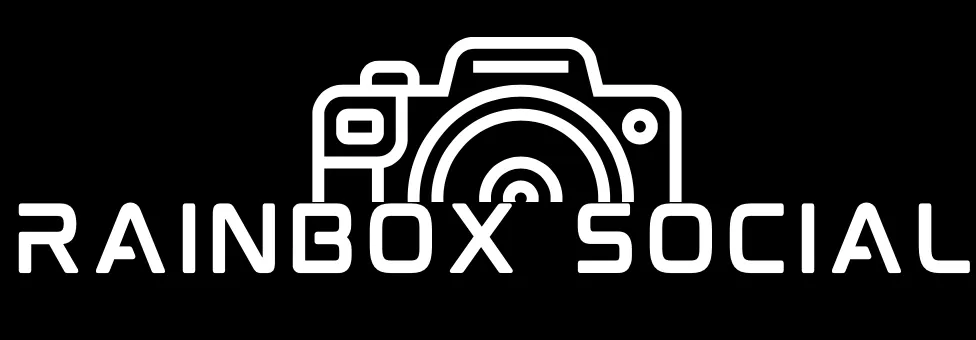

Top 24 Lead Generation Ideas for Real Estate in 2024
Introduction
Hello everyone, Linda Cox here, diving into what promises to be a transformative year for real estate professionals. As we look ahead to 2024, 2025, and beyond, the key to standing out in a crowded market is not just to follow trends but to anticipate and shape them. This article will explore 24 innovative lead generation ideas that are set to redefine how we engage with potential buyers and sellers. Whether you're just getting your feet wet or you're a seasoned pro looking to shake things up, these strategies will give you the edge you need.
Top 24 Lead Generation Ideas for 2024
VR tours to showcase properties: Virtual reality (VR) tours have revolutionized property viewings, offering a realistic and immersive experience. According to Realtor.com, listings with virtual tours receive 87% more views than those without VR tours.
AI-driven chatbots for 24/7 customer service: AI chatbots can handle inquiries at all hours, improving response times and customer satisfaction. Studies show that real estate companies using chatbots have seen a 50% increase in leads due to faster response rates, as reported by TechCrunch.
Local SEO optimization for targeted visibility: Optimizing for local search can increase visibility significantly. Google reports that 76% of people who conduct a local search visit a business within 24 hours.
Social media contests to engage potential buyers: Engaging audiences through social media contests can significantly increase interaction and lead generation. For instance, a well-crafted contest can boost engagement rates by up to 34% on platforms like Instagram, according to Hootsuite.
Webinars on home buying tips: Offering educational webinars positions realtors as industry experts and builds trust with potential clients. GoToMeeting statistics indicate that webinars can convert 20% of viewers into qualified leads.
Collaborative events with local businesses: Partnering with local businesses for events can expand your network and increase referrals. Event collaborations have been shown to increase local brand visibility by up to 35%, as detailed by Eventbrite.
Influencer partnerships: Collaborating with influencers can amplify your reach. Real estate brands working with influencers report an average increase in engagement of 22% compared to traditional ads, noted by Influencer Marketing Hub.
Customizable email drip campaigns: Personalized email campaigns adjust content based on user actions, leading to higher engagement. Mailchimp notes that customized emails have 26% higher open rates and contribute to 18% more revenue than generic emails.
Retargeting campaigns to re-engage visitors: Retargeting can increase conversion rates by reminding potential clients of what they viewed. On average, retargeting ads are 70% more likely to convert visitors into clients, according to AdRoll.
Interactive property maps: Maps that allow potential buyers to explore properties interactively can increase engagement. Users spend up to 300% more time on pages with interactive maps, as seen on Mapbox.
Community-focused blogging: Blogs focused on local real estate markets establish credibility and attract local traffic. HubSpot has shown that blogs result in a 55% increase in website visitors.
Home staging workshops: Workshops teach sellers how to stage their homes, increasing property appeal. According to the Home Staging Resources, staged homes sell 88% faster and for 20% more than non-staged homes.
Neighborhood guides and videos: Videos and guides that highlight local amenities and lifestyles attract those interested in relocating. Video Brewery reports that video content is 50 times more likely to drive organic search results than plain text.
Loyalty programs for referrals: Implementing referral programs can incentivize satisfied clients to refer others. Loyaltyworks reports that real estate agencies see a 35% increase in referrals after introducing a loyalty program.
Green and sustainable home promotions: Promoting eco-friendly homes meets growing consumer demand for sustainability. Green Home Builder Magazine notes that listings with green certifications sell for 7% more than equivalent non-certified homes.
Online reviews and testimonials: Positive online reviews build trust and can influence purchasing decisions. According to Yelp, 72% of buyers trust online reviews as much as personal recommendations.
Strategic open house weekends: Well-timed and promoted open house events can draw significant attention. Realtor.com finds that open houses increase visibility and typically result in a 9% faster sale time.
Co-hosting events with mortgage lenders: Events with lenders can provide prospective buyers with valuable financing information, increasing trust and engagement. Mortgage Professional America notes these events have boosted lead generation by up to 20% for participating realtors.
Seasonal promotions and offers: Timing promotions around holidays or seasons can capture interest when buyers are more active. Marketing Charts states that seasonal promotions have increased sales by up to 30% during peak times.
First-time homebuyer seminars: Educating new buyers builds relationships and establishes you as a go-to expert. The National Association of Realtors reports that first-time buyer seminars can convert 15% of attendees into clients.
Investing in local art and culture events: Supporting local culture can enhance community reputation and attract culturally minded clients. Arts Business Collaborative shows that sponsorship of local events leads to a 40% improvement in brand recognition.
Podcasts on real estate trends: Podcasts reach a broad audience and establish authority. Podcast Insights reveals that real estate podcasts have seen listener increases of up to 25% year-over-year.
Crisis management resources for homeowners: Providing resources for crisis management can build long-term client relationships. RIMS indicates that agencies offering these resources see a 50% increase in client retention.
Property management tips and tricks: Offering practical advice on property management can attract landlords and investors as clients. BiggerPockets states that content on property management increases client engagement by up to 60%.
Conclusion
The real estate industry is rapidly evolving, especially as technology is changing at a rapid pace. To survive and succeed, I recommend a proactive approach to lead generation. By integrating innovative technologies and personalized approaches, you can enhance your lead generation efforts and achieve remarkable results. Embrace these ideas to not only meet but exceed the expectations of today’s savvy homebuyers and sellers. Good luck realtors!